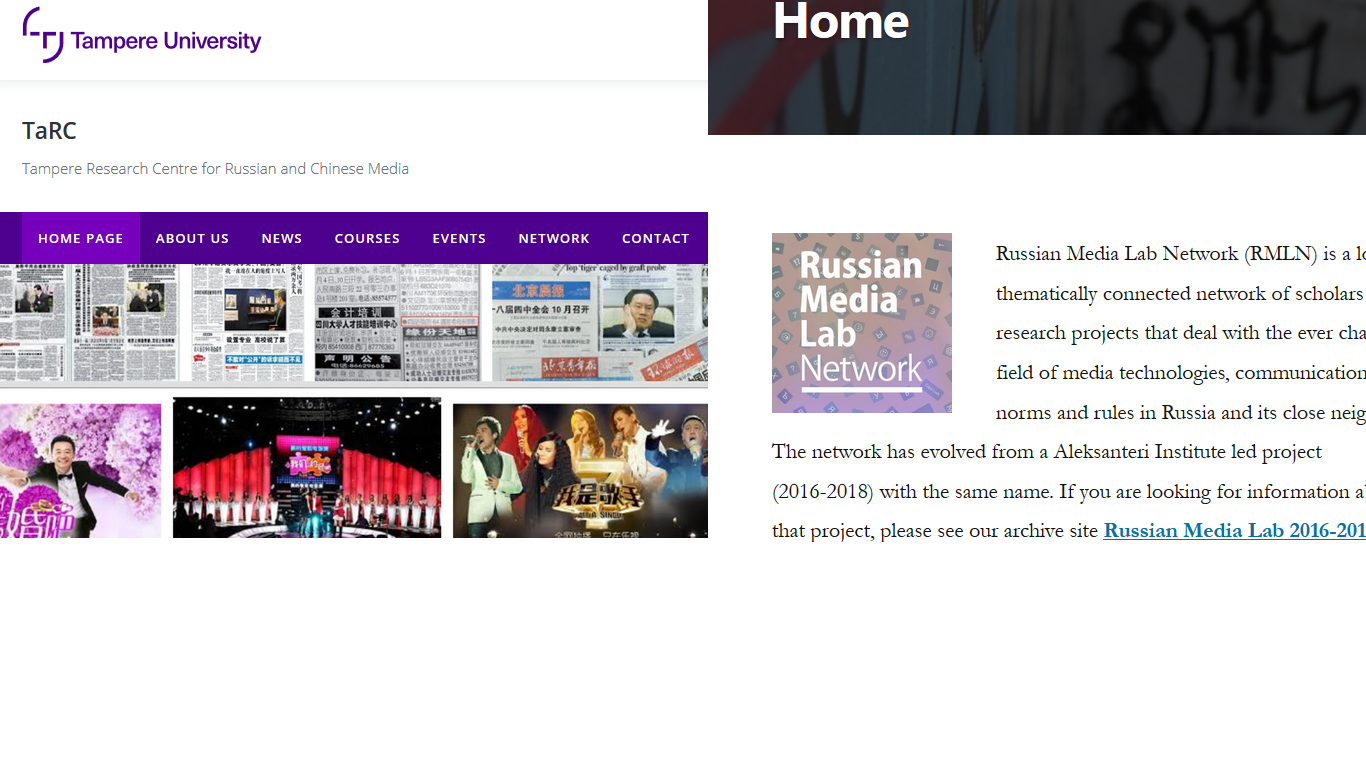Online Talks on Russian Media, the collaborative initiative between TaRC and the Russian Media Lab (University of Helsinki), rolls on!
The penultimate session for this academic year sees Roman Kyrychenko, Aleksi Knuutila, and Vasileios Maltezos from the University of Helsinki give a talk Mapping out impersonated propaganda operations on Telegram during the war in Ukraine.
In their presentation, they explore new mechanisms of information influence within the ecosystem of Telegram during the ongoing Russo-Ukrainian war.
Since the full-scale Russian invasion of Ukraine in 2022, Telegram has become increasingly popular as a source of information on the conflict. Some channels on the Telegram platform claim to be run by patriotic Ukrainian journalists and citizens, but instead, they focus on information and narratives that seek to undermine Ukrainian support for the war.
Investigations into the most influential channels following this tactic, such as rezident_ua, which reaches a million subscribers, have revealed that Russian military agencies coordinate these channels. Authors call this form of communication that relies on impersonation “impersonated propaganda” (to avoid the racial connotations of the term “black propaganda”, the term from classical propaganda theory).
During the talk authors will present early results from one of the first scholarly attempts to map out the structure of this network of channels and to understand its aims based on its most prominent narratives. They will also discuss Telegram’s position in the wider Russian and Ukrainian media ecology as well as the attempts of Ukrainian authorities to respond to disguised propaganda on the platform.
Speakers’ bios:
Roman Kyrychenko is a PhD student at the Centre for Sociology of Democracy at the University of Helsinki, working on a thesis on polarisation in Ukraine based on social media data. He has published on computational social science methods as well as using social media data to understand public opinion on the war. His recent publications include “Dynamics of aggressive discourse on Ukraine and the West in the Russian pro-government media in 2000-2022” (Kyrychenko, R., & Salnikova, S. (2022)) in the European Journal of Transformation Studies.
Dr Aleksi Knuutila is a University Researcher at the Department of Sociology at the University of Helsinki and the Helsinki Institute for Social Sciences and Humanities. After his doctorate in the Digital Anthropology programme at University College London, Knuutila’s research has focused on online harms such as misinformation and harassment and how political groups take advantage of contemporary information environments. His current research projects focus on developing tools and infrastructure for journalists working on conflicts and applying generative AI to qualitative research workflows. His recent publications include “Misinformation and Professional News on Largely Unmoderated Platforms: The Case of Telegram” with Herasimenka, Bright and Howard and “Synthetic Ethnography: Field Devices for the Qualitative Study of Generative Models” with de Seta and Pohjonen.
Vasileios Maltezos is doing a PhD thesis in sociology at the University of Helsinki. His research is focused on advancing the field of computational image analysis through the creation of new tools and methods for detecting features of political discourse on images. He recently published a paper on visual recurrence of a meme figure inside a Chinese political forum under the title: “The Pepe the Frog Image-Meme in Hong Kong: Visual Recurrences and Gender Fluidity on the LIHKG Forum” (Jacobs, K., Cheung, D. ., Maltezos, V., & Wong, C. (2023)) and is accessible from the Journal of Digital Social Research.
Event info:
This Online Talk will be held on Zoom on Tuesday 9 April from 12:00 to 13:30 (Helsinki time, GMT+3). The discussion will be moderated by Dr Katja Lehtisaari (Tampere University).
If you wish to participate and receive emails with updates about future Online Talks, please leave your contact information here on Monday 8 April by noon (Helsinki time). If you have already subscribed to the Online Talks mailing list, you do not need to register again! You will receive further information via email.

